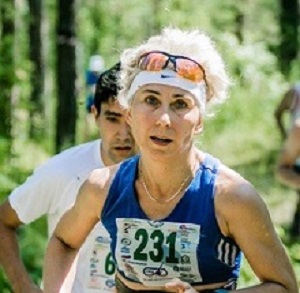 In elite male marathon runners, performance starts to decline by about two minutes per year at age 35, while for an average runner the slowdown start only at age 50, found a large US analysis.
In elite male marathon runners, performance starts to decline by about two minutes per year at age 35, while for an average runner the slowdown start only at age 50, found a large US analysis.
According to the Georgia State University study lead author, Dr Gerald Zavorsky, l associate professor in the department of respiratory therapy: "For top runners, we determined the slowdown is about two minutes per year beginning at age 35 for men, and for women, it's actually a little bit statistically faster of a slowdown, around two minutes and 30 seconds per year beginning at the age of 35."
"If you're an average runner finishing in the middle of your age group, statistically the slowdown starts at age 50. It's similar if you're a man or woman. The decline with aging in average runners is around two minutes and 45 seconds per year beginning at age 50."
The study also found that runners between 25 to 34 years old had the fastest times, with overall champion males at 28.3 years old and overall champion females at 30.8 years old. The rate of decline from 35 to 74 years old is roughly linear with female age group winners demonstrating a 27-second per year greater decline compared to male age group winners.
The researchers examined data from 2001 to 2016 for three of the largest marathons in the US – Boston, New York City and Chicago – to look at differences in the age of slowdown for men and women. They also determined if there are age-related differences in decline between elite runners (those who finish at the top of their age group) versus average runners (those who finish in the middle of their age group). The runners were between 16 and 74 years old.
Marathon running is one of the most popular sporting events in North America. At least 500,000 runners compete in marathons each year. This is the first study to examine more than a decade of age-group winners and median finishers from multiple marathons.
Zavorsky believes the 15-year difference in age-related slowdown for elite runners versus average runners occurs because some people don't realize their running potential and don't start running until later in life.
"Elite athletes realise their potential when they're young, and they're able to maximise that potential when they're young," Zavorsky said. "But average runners might not realise their potential until they're a lot older and by that time physiological aging comes in. They try to reach their maximum potential, but they're trying to reach it at a much older age and their ceiling for improvement is not as high."
He also thinks the world champion males are a little younger than the world champion females because of circumstance, not necessarily physiological differences. Women might take time off from running to deliver a child and then start back up again, Zavorsky said.
The study's findings aren't intended to discourage older runners, he said. "If you're an older person and you want to pick up marathon running, yes you can still improve because you've just now begun running," Zavorsky said. "There's always room for improvement, but physiologically, you were probably at your prime somewhere between 25 and 34 years old. But people who are older can still train to achieve personal goals and get the health benefits of exercise, such as lower blood pressure, lower blood cholesterol and enhanced psychological well-being."
While complete 2001-2016 data weren't available from the three marathons, the researchers are confident that examining three marathons over several years provides enough data to give a careful analysis.
Abstract
The first aim of this study was to determine the age group at which marathon performance declines in top male and female runners and to compare that to the runners of average ability. Another aim of this of this study was to examine the age-related yearly decline in marathon performance between age group winners and the average marathon finisher. Data from the New York (NYC), Boston, and Chicago marathons from 2001–2016 were analyzed. Age, sex, and location were used in multiple linear regression models to determine the rate of decline in marathon times. Winners of each age group were assessed in 5-year increments from 16 through 74 years old (n = 47 per age group). The fastest times were between 25–34 years old, with overall champion males at 28.3 years old, and overall champion females at 30.8 years old (p = 0.004). At 35 years of age up to 74 years of age, female age group winners had a faster yearly decline in marathon finishing times compared to male age group winners, irrespective of marathon location [women = (min:sec) 2:33 per year, n = 336; men = 2:06 per year, n = 373, p < 0.01]. The median times between each age group only slowed beginning at 50 years old, thereafter the decline was similar between both men and women (women = 2:36, n = 140; men = 2:57, n = 150, p = 0.11). The median times were fastest at Boston and similar between Chicago and NYC. In conclusion, the rate of decline at 35 years old up to 74 years old is roughly linear (adjusted r2 = 0.88, p < 0.001) with female age group winners demonstrating 27 s per year greater decline per year compared to male age group winners.
Authors
Gerald S Zavorsky, Kelly A Tomko, James M Smoliga
[link url="http://news.gsu.edu/2017/02/28/marathon-performance-study/"]Georgia State University material[/link]
[link url="http://journals.plos.org/plosone/article?id=10.1371/journal.pone.0172121"]PLOS One abstract[/link]
